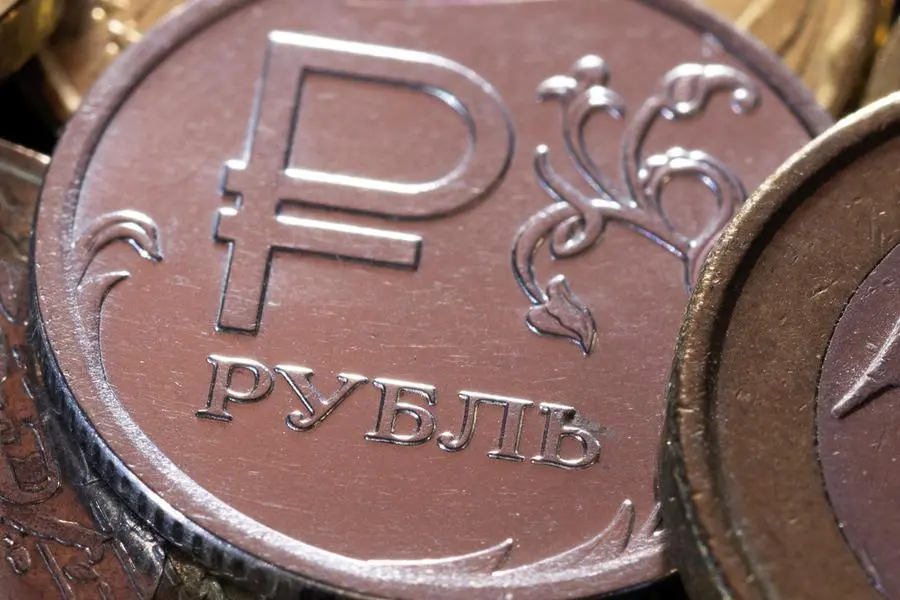PHOTO
* This content was produced in Russia where the law restricts coverage of Russian military operations in Ukraine (Updates prices, adds analyst comment)
MOSCOW, July 27 (Reuters) - The Russian rouble rebounded from over two-week lows on Wednesday, clawing back some losses sustained in the previous session, helped by high gas prices and the prospect of Thursday's income tax payments by exporting firms.
By 1136 GMT, the rouble was 1.9% against the dollar at 59.39 , after sliding to 61.20 in early trade, its weakest point since July 11. It had gained 2.3% to trade at 60.27 versus the euro, recovering from a more than two-week low of 62.0575 touched earlier.
Companies have to pay income tax on Thursday, said Bank St Petersburg, and selling foreign currency for this purpose was supporting the rouble.
The rouble has become the world's strongest-performing currency so far this year, boosted by measures to shield Russia's financial system from Western sanctions imposed after Moscow sent troops into Ukraine on Feb. 24.
These include restrictions on Russian households withdrawing foreign currency savings.
The rouble has slid lower in the last week, with the market anticipating measures from the government that may halt the currency's strengthening.
"The Russian currency, by all accounts, is turning to short-term decline in expectation of the introduction of a new budget rule," said Veles Capital in a note.
High-ranking sources told Reuters last week that Russia may reinstate the budget rule that diverts excess oil revenues into its rainy-day fund, setting a new cut-off oil price of $60 per barrel, and is looking for new ways to build up official reserves.
GAS SUPPORT
High commodity prices have also buoyed the currency, although the rouble's strength has vexed officials as it dents Russia's income from exports of those commodities and other goods priced in dollars and euros.
Brent crude oil, a global benchmark for Russia's main export, was up 0.9% at $105.4 a barrel, but selling difficulties caused by sanctions mean Russia has been forced to sell at a discount.
"It is worth noting that the decline in gas supplies from Russia to Europe also impacts the strengthening of positions of Western countries' currencies," said Promsvyazbank analysts.
Europe faces a tighter gas squeeze from Wednesday, when Russia's Gazprom has said it would cut flows through the Nord Stream 1 pipeline to Germany to a fifth of capacity.
Gas prices rallied on Wednesday, with some contracts hitting their highest intraday levels since March.
Investors also have an eye on the United States, where the Federal Reserve is expected to hike its key interest rate by 75 basis points.
Russian stock indexes were rising. The dollar-denominated RTS index was up 2.6% to 1,166.0 points. The rouble-based MOEX Russian index was 0.2% higher at 2,197.5 points. (Reporting by Reuters; Editing by Angus MacSwan)
Reuters





















